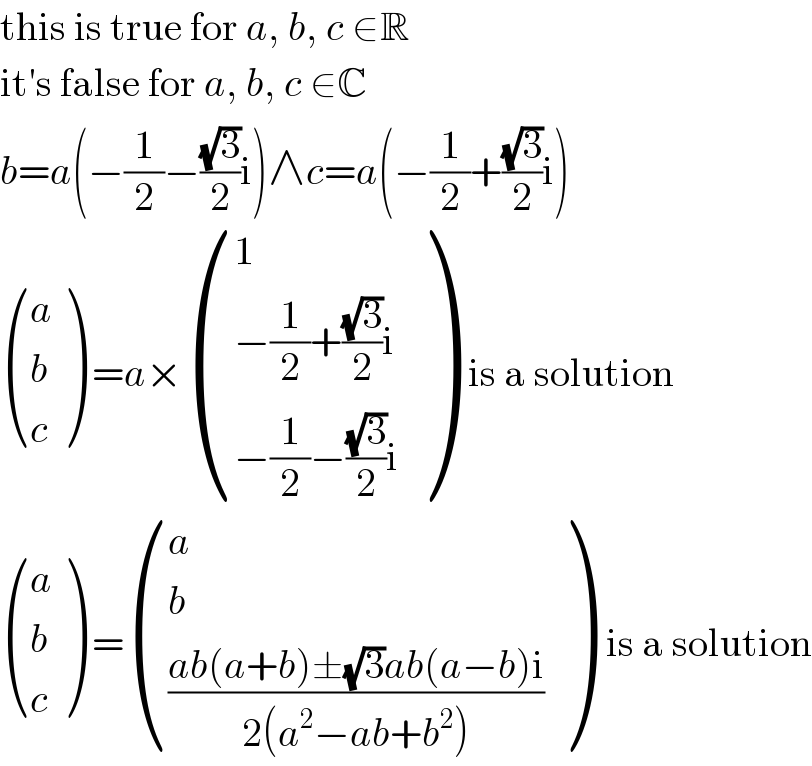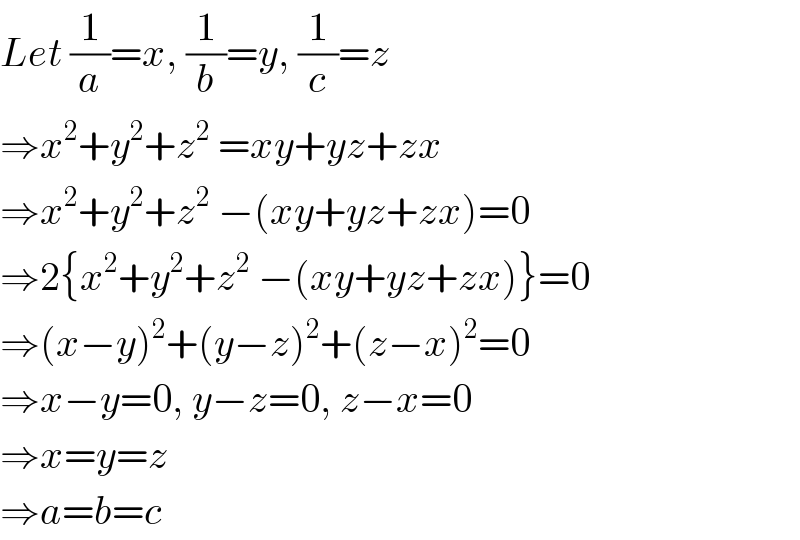
Question and Answers Forum
Question Number 70312 by Shamim last updated on 03/Oct/19

Commented by MJS last updated on 03/Oct/19

Answered by $@ty@m123 last updated on 03/Oct/19

| ||
Question and Answers Forum | ||
Question Number 70312 by Shamim last updated on 03/Oct/19 | ||
 | ||
Commented by MJS last updated on 03/Oct/19 | ||
 | ||
Answered by $@ty@m123 last updated on 03/Oct/19 | ||
 | ||
| ||